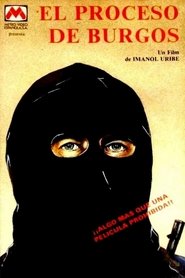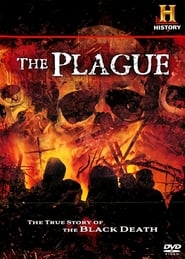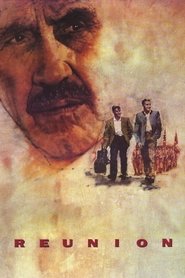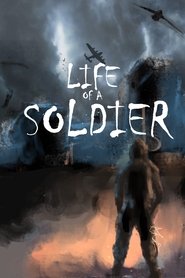Popular History Movies on Tub Tv - Page 352
-
Angel Lust
2026
Angel Lust
2026
Executed for defying society in 1782, Ophelia Danube is offered a path through time to find her lover again - if malevolent forces don’t stop her first. -
Mia Farrow: Shadows and Light
2025
star 6The artistic career of American actress Mia Farrow has been that of a passionate and committed woman who became the embodiment of a special kind of femininity, halfway between innocence and madness. -
Gaggee
2012
Gaggee
2012
A period drama set in the city of Varanasi. The raja of Varansi is unable to satisfy his younger wife’s sexual needs so she has an affair with one of the king’s generals. -
Antonius und Cleopatra
1963
After the murder of her lover Caesar, Egypt's queen Cleopatra needs a new ally. She seduces his probable successor Mark Antony. This develops into real love and slowly leads to a war with the other possible successor: Octavius. -
The Burgos Trial
1979
The Burgos Trial
1979
star 6.8Documentary about the court martial held following the assassination of Melitón Manzanas, commissioner of the Political-Social Brigade of Guipúzcoa, in an attack carried out by ETA on August 2, 1968. The film includes a series of interviews and testimonies from those imprisoned and prosecuted in that court martial. Following the attack, a state of emergency was declared in Guipúzcoa and hundreds of people were arrested. -
The Plague
2005
The Plague
2005
star 8It began much like the common cold. Yet within a day fever took over black swellings the size of baseballs appeared on the neck and finally a highly contagious bloody cough quickly sealed the victim's fate. During the worst biological disaster in the history of mankind the so-called black death released an indiscriminate fury which shook the very foundations of human order. Religious hysteria began to break out and in desperation frenzied masses scrambled to find a scapegoat. When all was said and done nearly one-third of Europe's population had been completely wiped out and devastated survivors were left to contend with a world forever changed both socially and economically. In this feature-length special THE HISTORY CHANNEL-® investigates the origins of this devastating moment in human history and explores the many questions surrounding the terrifying possibility of a modern-day biological threat. -
Reunion
1989
Reunion
1989
star 6.5Attorney Henry Strauss grew up in Germany, but left the country with his Jewish family during the rise of the Third Reich. Still wondering about what happened to his boyhood friend Konradin Von Lohenburg, Strauss travels back to Germany for the first time since he was a young man, bringing up some painful memories. -
November Days
1991
November Days
1991
star 5.7Marcel Ophüls interviews various important Eastern European figures for their thoughts on the reunification of Germany and the fall of Communism. -
Last Judgment
2024
Last Judgment
2024
The film is dedicated to the upcoming 150th anniversary of the birth of Kazakh writer and public figure Akhmet Baitursynov next year. Filming began in Almaty in November. -
Golden Leggings
2022
Golden Leggings
2022
August 19, 1991. USSR. Moscow is filled with rallies, barricades and tanks. But a summer school camp on the South is living its own life. -
Do Útero Ao Túmulo
2022
-
The Butcher, The Whore and the One-Eyed Man
2018
star 5.1Depicts the slow decline of three individuals as they are sucked into a world of sinful existence. It is the story of a wild and voracious love triangle. -
Dateline: Saigon
2017
Dateline: Saigon
2017
star 8How does a nation slip into war? Dateline-Saigon profiles the controversial reporting of five Pulitzer Prize-winning journalists -The New York Times' David Halberstam, the Associated Press' Malcolm Browne, Peter Arnett, and legendary photojournalist Horst Faas, and UPI's Neil Sheehan -- during the early years of the Vietnam War as President John F. Kennedy is secretly committing US troops to what is initially dismissed by some as 'a nice little war in a land of tigers and elephants.' 'When the government is telling the truth, reporters become a relatively unimportant conduit to what is happening,' Halberstam tells us. 'But when the government doesn't tell the truth, begins to twist the truth, hide the truth, then the journalist becomes involuntarily infinitely more important.' -
Roanoak
1986
Roanoak
1986
The story chronicles the first recorded meeting in the late 16th Century between British explorers-settlers and Native Americans in what is now North Carolina, and the conflicts that ensued between the two diverse cultures before this early settlement mysteriously vanished. -
Francis of Assisi
1966
Francis of Assisi
1966
star 5.8A 1966 biopic of Francis of Assisi presents him as a troubled rebel and champion of radical brotherhood, reflecting the spirit of 1968 student protests. Praised and condemned, the film sparked controversy for its bold, dissenting portrayal of faith. -
Desert One
2019
Desert One
2019
star 6.2The true story behind one the of most daring rescues in modern US history: a secret mission to free hostages captured during the 1979 Iranian revolution. -
The Yellow Tie
2025
The Yellow Tie
2025
star 8The extraordinary life of Sergiu Celibidache, from his childhood in Romania to his exile in pursuit of a career in music, his struggle for survival in wartime Germany and his rise, fall and rise again, in an unimaginable life journey. -
Life Of A Soldier
2022
Life Of A Soldier
2022
The wife of a former general in the German army received a letter in witch she was informed that her husband has to enlist in the German army and fight on the frontline. Affected by this news, she opposed the commanders who brought the letter, which shot her on the site. Her husband, in an act of revenge, starts being a hero on the frontline, violating orders and deciding the fate of the battle of Verdun. -
Shakir
1932
Shakir
1932
Kulak Walter's successor, Robert, calls his fellow villagers to form a collective farm. The poor peasantry of the village actively supports his call. The first collective farm of German colonists "Rote Fane" (Red Flag) is created. Local kulaks begin to fight against him. Under the influence of the kulaks' agitation, part of the middle-class colonists went to Germany. The collective farm grows and becomes stronger, and the kulaks weaken. Walter bribes his watchman, old Shakir, and incites him to kill Robert. But Shakir can't beat Robert. He exposes Walter's nefarious intentions and joins the collective farm. A letter comes from the departed colonists, reporting that there is an economic crisis and unemployment in Germany, and expressing regret for following the provocation and leaving the Soviet Union.
 Netflix
Netflix
 Amazon Prime Video
Amazon Prime Video
 Apple iTunes
Apple iTunes
 Apple TV Plus
Apple TV Plus
 Disney Plus
Disney Plus
 Google Play Movies
Google Play Movies
 Paramount Plus
Paramount Plus
 Hulu
Hulu
 HBO Max
HBO Max
 YouTube
YouTube
 fuboTV
fuboTV
 Peacock
Peacock
 Peacock Premium
Peacock Premium
 Amazon Video
Amazon Video
 The Roku Channel
The Roku Channel
 AMC+
AMC+
 Kocowa
Kocowa
 Hoopla
Hoopla
 The CW
The CW
 Vudu
Vudu
 Starz
Starz
 Showtime
Showtime
 PBS
PBS
 Pantaflix
Pantaflix
 FXNow
FXNow
 Tubi TV
Tubi TV
 Kanopy
Kanopy
 Comedy Central
Comedy Central
 Crunchyroll
Crunchyroll
 Microsoft Store
Microsoft Store
 Redbox
Redbox
 Sun Nxt
Sun Nxt
 ABC
ABC
 DIRECTV
DIRECTV
 Crackle
Crackle
 Fandor
Fandor
 Plex
Plex



















